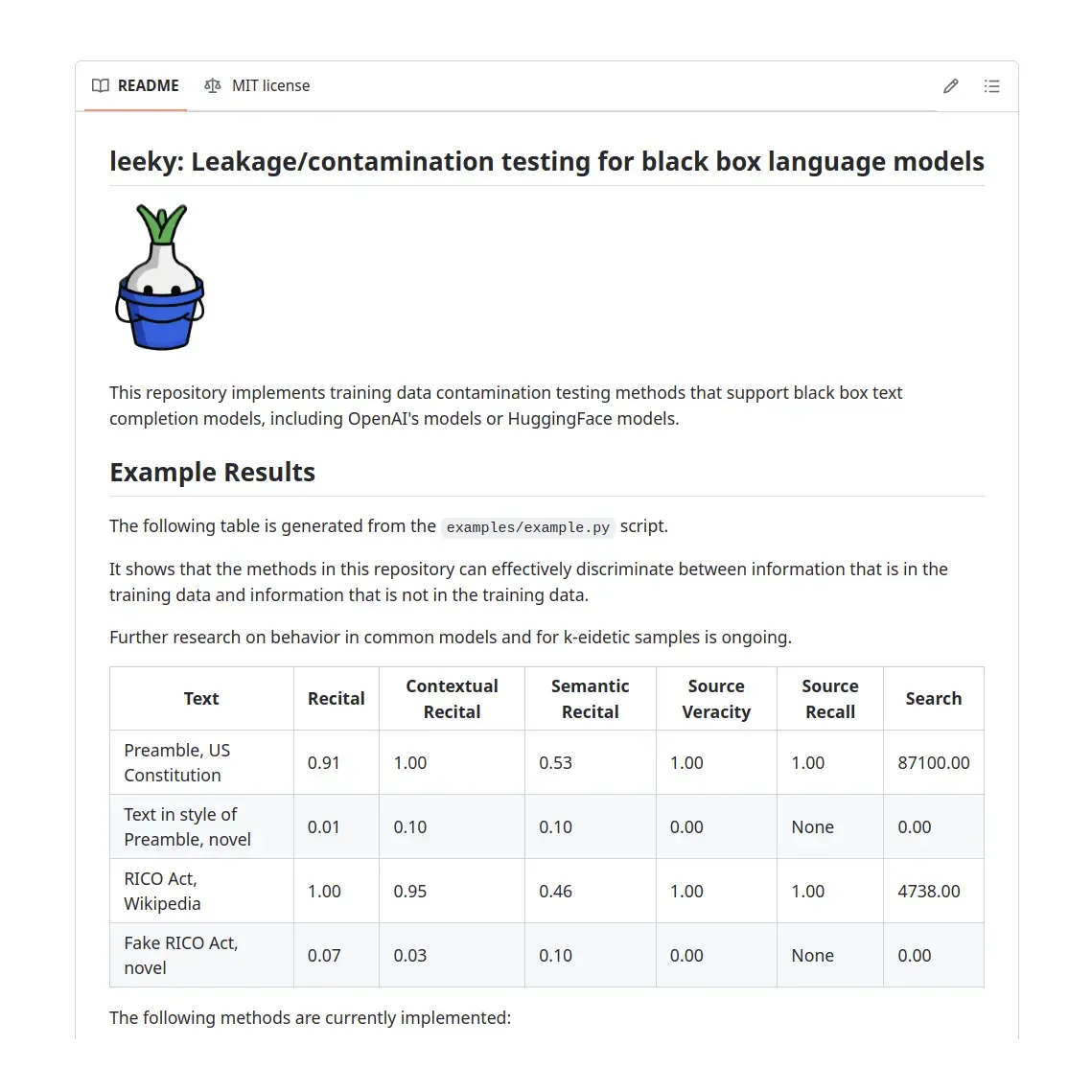A Python library to test for training data contamination on black box models.
In collaboration with:

How do you know if a black box model like GPT-4 or LLaMA 3 has been trained on a specific source like a book or website?
This question, commonly referred to or related to topics like “membership inference,” “data leakage”, or “training data contamination,” is critical for the evaluation and understanding of models.
leeky is a Python library designed to help answer this question by testing for training data contamination on black box models.
Leeky supports five methods for evaluating models:
While each of these techniques may have limitations or biases in certain cases, the goal of leeky is to provide an ensemble of methods that can be used together to assess the likelihood of training data membership for a given source.
You can find more information about using leeky on GitHub at leeky.
Don't be shy. We'd love to hear from you.